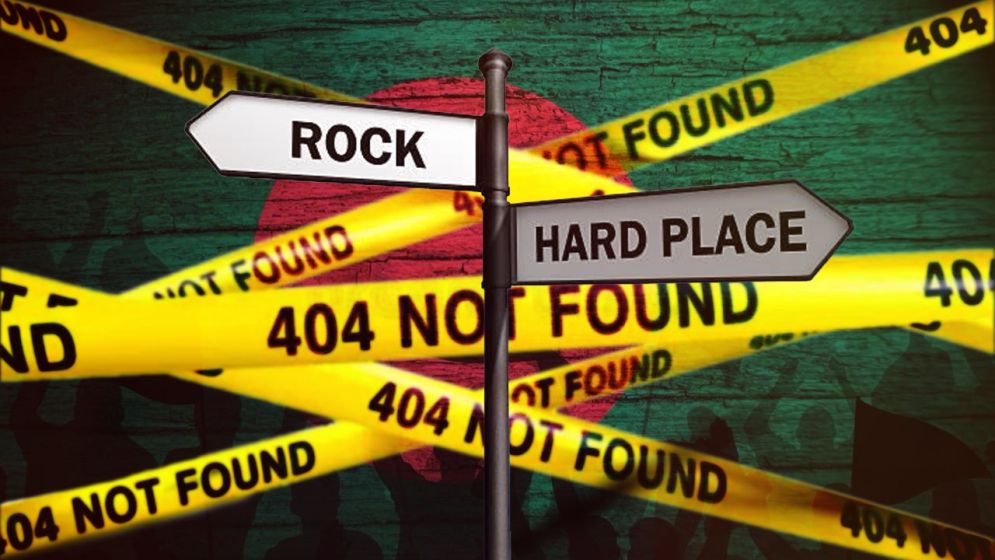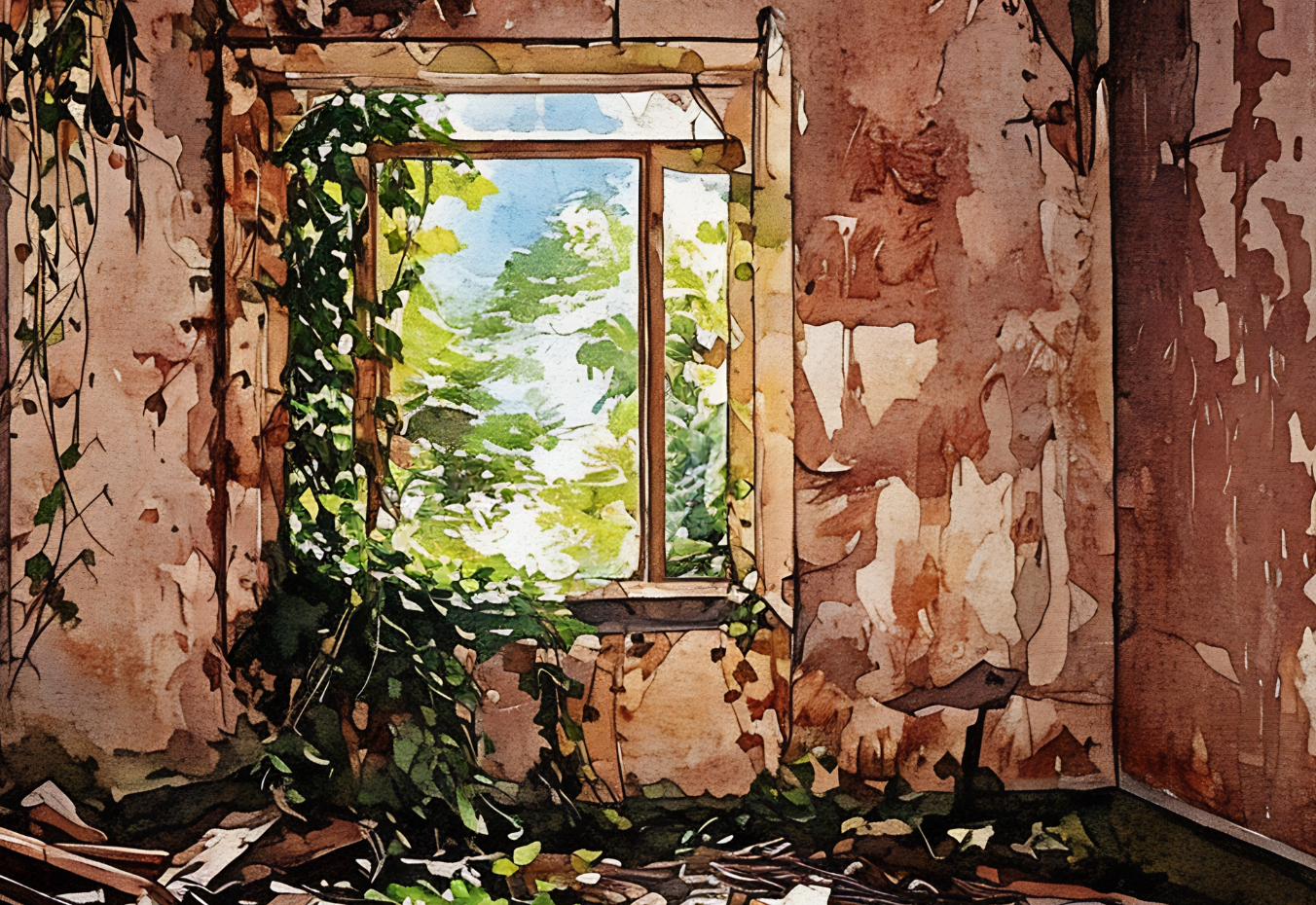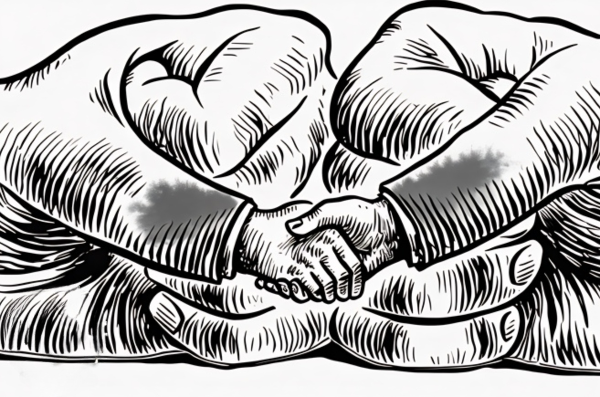Bangladesh is not for the beginners..nor for the experienced as well

The idea that Bangladesh’s current interim government has a strong presence of Jamaat-e-Islami strikes me as not only misguided but fundamentally absurd.
If this were true, why on earth would Jamaat allow most of the Awami League's leadership–the very architects of the bloody violence that devastated their own party–to flee the country?
The essential translation of this narrative is that the interim government is playing both sides–backing both the Awami League and Jamaat, the latter of whom endured brutal repression under Awami League rule– is as nonsensical as it is insulting.
Let’s step back and examine the bigger picture. Historically, Bangladesh’s state institutions have been weak, but after 2008, and especially since 2024, the Awami League transformed the nation into a grotesque parody of governance.
The party perpetuated the traditional model of corruption– where officials skimmed off VAT and tax revenues– and at the same time they redefined plunder itself. Under their watch, the system evolved into an insidious money-laundering operation: bank loans were siphoned off, reserves were artificially inflated, and currency was printed out of thin air.
It’s as if an Awami League robber didn’t just break into your home and raid your safe–they cloned your credit card, took out millions in loans, and vanished overseas. Not only is your wealth gone, but you’re also left with the crushing debt they left behind.
In this warped reality, nothing is as it seems. Official data is a joke. Votes are cast in the dead of night. The police are in bed with the Yaba trade, and courts hold hearings on holidays to expedite dubious rulings. Bangladesh, under the Awami League, had become a tragicomic circus, where the line between reality and absurdity has long since vanished.
And then, in the July uprising, the unthinkable happened: Sheikh Hasina, consumed by her insatiable lust for power, kept stumbling into one blunder after another.
Her disastrous decisions culminated in a moment of reckoning, as students and ordinary citizens, with nothing but their bare hands, fought back against the police, Rapid Action Battalion, and even the military, to expel this despotic regime.
But here's the twist: The Awami League’s great escape plan–a seamless fusion of looting and political maneuvering–was never just about clinging to power. It was about ensuring their survival, by embedding loyalists into every stratum of society, both military and civilian, who would protect their flight.
In short, what we're witnessing now is not just a political crisis but an entire nation trapped in a masterfully orchestrated scheme of theft, oppression, and misrule. And now, as the political class shifts and twists, the extent of that corruption is laid bare–for all to see.

Standing on the ruins
The Awami League has fled, and with it, the iron grip of Sheikh Hasina’s regime. In its place, the interim government, now led by Dr. Muhammad Yunus, has taken the reins. But before we dive into any analysis of this new government, it's crucial to understand exactly what we mean by the term "government" in this context.
As I’ve pointed out repeatedly, Bangladesh, at this moment, is devoid of any substantial military or administrative presence sympathetic to the BNP or Jamaat-e-Islami.
The long, destructive reign of Awami misrule has left the political landscape irrevocably altered. Under Hasina, the country saw the rise of a regime built on relentless plunder and unchecked authoritarianism, a system so deeply entrenched that it reshaped the very mindset of those in power.
Much like clay that’s molded under pressure, the political and administrative structures of Bangladesh have been permanently warped by Awami League’s corrosive rule.
This system of plunder was also about creating a narrative of fear. Hasina’s regime portrayed the majority of the population, particularly its Islamist elements, as "jihadists" to both the international community and domestic civil society, justifying a brutal, arbitrary use of state violence.
This narrative served as a veneer of legitimacy for her reign of terror. But when the July uprising unfolded, a large swath of Bangladesh's secular civil society mobilized against her, effectively undermining the “Rajakar-jihadist” narrative.
Hasina’s routine use of state violence lost its legitimacy, forcing her to resort to irregular and increasingly desperate forms of repression. This, in turn, led to the ultimate collapse of what can only be described as her "Shaddad's palace."
Now, with Dr Yunus at the helm of the interim government, Bangladesh has, at least in the eyes of the outside world, gained some semblance of legitimacy. The appointment signals a break from the “jihadist state” narrative that had been constructed under the Awami regime, signaling to international actors that Bangladesh is not veering toward an Islamic state.
This, of course, is a welcome shift in terms of external perception, but the internal reality is far from the polished image we project abroad.
Internally, Bangladesh is nothing short of a farce. No rational person, not even a fool, would believe that a newly appointed government official would take up a post in an office once looted of 500 crores with impunity, only to work for a meager 60,000 taka salary.
The dehumanizing ideological framework of the Awami League–which labeled every citizen a potential jihadist and used that excuse to justify looting on a grand scale–has collapsed. With it, the tools that enabled state-sponsored terror and unchecked plunder have vanished.
The connections that once bound the regime to external patrons, particularly India, have been severed. The state apparatus is, for all intents and purposes, in a state of convulsion– uncoordinated, disjointed, and rife with anarchy.
This is the grim reality in Bangladesh today: a country in the throes of political and institutional collapse, where the machinery of governance has entered a state of paralysis, and the once-mighty regime of Hasina has crumbled under the weight of its own contradictions.

Rot beneath the surface
In this vacuum, the interim government may claim legitimacy on the world stage, but internally, the state is little more than a surreal, chaotic shell of its former self.
Bangladesh’s far-right parties have found an unexpected opportunity in the anarchic system that has emerged under the interim government. With their prospects of winning power through fair elections virtually nonexistent, and any attempt to seize control by force likely to trigger an international-backed intervention–ekin to Egypt's Sisi-style coup–they are exploiting the current political chaos to gain whatever advantages they can.
By capitalizing on the Yunus government's permissiveness, they are chipping away at the country’s fragile liberal political order. Beneath the government’s secular facade, these far-right factions are making their presence known, flexing their muscle and undermining the democratic framework in the process.
Here lies the paradox: the far-right, with all its ideological contradictions, has welcomed a man like Yunus–a proponent of economic growth, female empowerment, and even high interest rates– as their "Imam."
It’s a strange alliance, but one borne out of sheer opportunism, with the far-right using the vacuum of power to sow discord and build political leverage. In doing so, they are attempting to rewrite the rules of the game, taking full advantage of a government that, while outwardly secular, has no real grasp on the country’s political future.
The Yunus government, for its part, seems to be playing a dangerous game of its own. In a desperate attempt to broker a peaceful exit and secure its future position, it has made a Faustian deal with Jamaat-e-Islami and other far-right groups.
This alliance, while aimed at consolidating political power, is fraught with peril. In many ways, it mirrors the BNP’s ill-fated turn to extremist alliances in 2001. As I’ve argued before, in countries like Bangladesh, Pakistan, and Egypt, the key to establishing a system of unbridled corruption–a “maximum plunder” system–often requires the creation of a "jihadist" threat.
If one doesn't exist, it must be fabricated. In the current climate of political volatility, this means all parties–including India and the Awami League–have a vested interest in cultivating instability. This instability often manifests through the formation of insurgent groups, stirring up unrest that can be conveniently blamed on political adversaries.
For any party in Bangladesh that builds too close a relationship with far-right groups, the costs will be steep. In the short term, rallies with fiery speeches and chants may appear empowering, but when larger-scale violence erupts–and it inevitably will–the consequences will be grave.
Those who cozy up to the far-right will quickly find themselves entangled in the fallout, saddled with responsibility for the ensuing chaos.
As for me, I don’t offer advice to those wealthier or more powerful than myself, so I’ll refrain from telling the Yunus government or the NCP what they should do. They are in their positions because they understand the intricacies of power, just as I’m in mine, observing from the sidelines.
However, one thing is abundantly clear: Jamaat’s ability to strike a dangerous deal with the interim government is largely due to its Leninist-style organizational prowess, honed over the past 16 years.
This organizational discipline gives Jamaat a far greater edge in navigating Bangladesh’s fractured political landscape than the BNP, which, despite its early gains, is struggling with a lack of cohesion and a fractured central system.
The Awami League, meanwhile, is far from idle. It is leveraging the current vacuum to consolidate its own advantages, using its entrenched cultural power to quietly secure benefits for itself as it seeks to escape the consequences of its disastrous rule.

A dance of opportunism
So, what we are witnessing now is a delicate dance of opportunism, where each faction–from the far-right to the Awami League–seeks to exploit the current power vacuum, and in doing so, digs the country deeper into an abyss of instability and corruption.
The real question is: when the inevitable storm hits, who will be left standing, and at what cost?
The fact is, at its core, Bangladesh has devolved into a brutal system where "might makes right." With the vacuum in state institutions and the absence of rule of law, power is no longer derived from legitimacy but from the ability to organize force.
Those who can rally power–even through violence–can extract whatever they want from the interim Yunus government. But let's be clear: the Yunus administration itself is nothing more than an empty throne.
There is no real authority there, no one truly sitting in power. In this void, anyone with the muscle to mobilize 1,000 angry people can claim influence and dictate terms.
What’s more devastating is the toll this system takes on the country’s most vulnerable: the ordinary working class. The people who still believe in the idea of "earning a living through hard work" and the rule of law–those who have nothing but their labor to give–are the ones crushed under the weight of this lawless order.
Garment workers, private university students, women–they are the ones bearing the brunt of the country’s disintegration. These are the very people who, after a long day of work, can’t possibly spare the time or energy to become an "assistant social welfare secretary" in some political committee.
Yet they are the ones who have the most to lose.
Despite their crucial role in the July uprising, garment workers continue to protest for unpaid wages and benefits, while some take their own lives in the face of unbearable work and mental pressure.
Private university students, who may not fill out civil service exam forms or pursue conventional career paths, joined the protests purely out of a sense of justice–yet they remain voiceless in the corridors of power.
Women, despite their immense courage in taking to the streets, are subjected to violence and political muscle-flexing, trapped in a patriarchal system that forces them to prioritize domestic labor over political participation.
The system, in effect, has placed barriers in their way, preventing them from engaging in the "committee-committee" game of politics.
A logical solution to this crisis might be for the disorganized masses to mobilize, to unite across various fronts. Workers could be politically activated, private university students could leave their classrooms to patrol the streets, and women could form regular solidarity marches.
In theory, this might seem like an appropriate response to a failing state. However, the harsh reality is that Bangladesh’s economic, social, and political conditions are so steeped in plunder that regular organization is nearly impossible.
Consider the garment workers who protest for months, demanding wages that are rightfully theirs, only to give up hope when nothing changes. Eventually, they accept their fate and move on to a new job, facing the same exploitation.
The systemic rot is so entrenched that even the most dedicated, hard working people are forced to surrender, to acquiesce, because the system simply won’t allow them to organize meaningfully.
In short, Bangladesh's system is one that prevents working professionals, and particularly the country's most vulnerable, from ever truly organizing for change. The political order is designed to ensure that only those with the power to mobilize force can secure anything of value.
The rest–those who rely on hard work and a
fair system–are left to fend for themselves, slowly suffocating under a state
that no longer cares for them. This is the tragic state of affairs: a country
where the promise of hard work is a distant dream, and the rule of law is a cruel
illusion.
Who will break the wheels?
The fundamental flaw in Bangladesh’s current political landscape lies in the fact that it is unsustainable for a country’s civil society to operate on a perpetual cycle of rallies, protests, and mobilization.
Constantly keeping your muscles stiff, your voice hoarse, and your neck exposed to the weight of an oppressive system cannot be the defining feature of national life.
At its core, the goal should be far simpler: ordinary people must be able to earn a living, while a welfare-oriented state maintains law and order, supports a functioning justice system, and ensures a basic standard of governance.
The crux of the matter is this: the general public must shift its focus toward the politics of communication, not continual confrontation. We need a system in which regular elections, a minimum framework of law and order, and transparency in governance are entrenched as basic standards.
In such a system, people should be able to voice their opinions in the public sphere after a full day’s work, holding the government accountable through the simple but crucial act of voting.
Unfortunately, this is a system that has never truly existed in Bangladesh.
From the outset, the country has been plagued by a failure to provide basic democratic infrastructure–something that every citizen has a right to expect.
Given this dire reality, the limited organizational power of Bangladesh’s working people must be focused and strategic. The priority should not be to constantly engage in mobilization, but to work toward creating a system where democratic processes are respected.
Garment workers, ethnic or religious minorities, women, and private university students cannot be expected to perpetually exert political force. Instead, these groups must consolidate their resources around a common cause–one that pressures the state to guarantee basic democratic rights and fair governance.
They must focus on a generalized, state-centric issue, aligning their demands into a force that compels the conventional political parties to respond.
However, this pressure will only gain traction when Bangladesh can establish a credible, fair election process. Without free and fair elections–and without the regular holding of those elections–all other political discussions are moot.
The entire structure of accountability and legitimacy falls apart if the election system is not trusted or, worse, is undermined by those in power. This, in essence, is the heart of Bangladesh’s crisis: the inability to make elections a regular and trusted practice.
Until this is achieved, all other forms of political engagement–from protests to petitions–will remain irrelevant. The struggle for Bangladesh’s future must center on the restoration of democracy itself.
Without this, the country will remain trapped in an endless cycle of instability, where the promise of governance remains forever unfulfilled.
—
Mikail Hossain is a researcher and analyst

